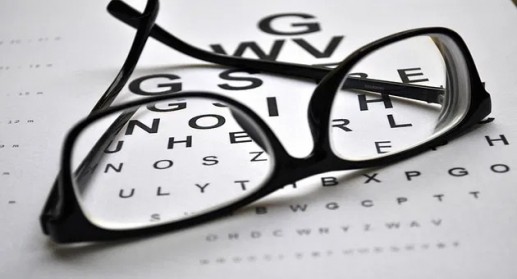![]()
![]() Call us for any query: +91-98-21-21-8128
Call us for any query: +91-98-21-21-8128
![]()
![]() Call us for any query: +91-98-21-21-8128
Call us for any query: +91-98-21-21-8128
Categories
Categories
Indian Optometry & Optician Director's Cut Brand Jade Jaxon Advocacy Mission Vision
25th
Jan,, 2025,How to Improve Your Eyesight When You Have Glasses: Tips and Strategies
Posted by : Mukut Sarma

For many, glasses are a necessity for clear vision, but wearing them doesn’t mean you can’t take proactive steps to improve your eye health and even reduce your dependency on them. If you’ve ever wondered how to improve your eyesight when you have glasses, this guide offers actionable tips and strategies that blend science-backed advice with practical lifestyle changes. Let’s dive in!
Glasses work by compensating for refractive errors such as nearsightedness, farsightedness, or astigmatism. While they correct your vision, they don’t address the root causes of these issues. Improving your eyesight often involves adopting habits that support overall eye health and reduce strain. Here’s how you can start:
Just like any other muscle in your body, your eye muscles can benefit from regular exercise. Try these simple exercises to strengthen your eyes and maintain flexibility:
What you eat plays a significant role in maintaining healthy vision. Include these nutrient-rich foods in your diet:
Prolonged screen time is one of the biggest contributors to eye strain today. Here’s how to protect your eyes:
4. Maintain Proper Hygiene
Poor eye hygiene can lead to infections and discomfort. Follow these tips to keep your eyes clean:
5. Stay Active and Manage Stress
Regular physical activity and stress management benefit your overall health, including your eyes:
Routine check-ups are crucial for monitoring your eye health and prescription:
Vision therapy is a structured program supervised by an eye care professional. It involves exercises designed to improve eye coordination and focus, particularly useful for those with specific vision issues like strabismus or lazy eye.
Protecting your eyes from UV rays is essential for long-term eye health. Choose sunglasses that:
Your eyes need rest to recover from daily strain. Aim for 7-9 hours of quality sleep every night to reduce redness, dryness, and puffiness.
Some natural remedies may help soothe tired eyes:
While glasses help correct your vision, taking steps to improve your eye health can make a significant difference in your quality of life. By incorporating these practices into your daily routine, you can reduce strain, support your eyes’ natural functions, and even slow down further vision deterioration. Remember, consistency is key, and consulting with an eye care professional is always a good idea for personalized advice.
Start small, make eye health a priority, and see the world more clearly—even with glasses!
![]()
100% Secure
Payment
![]()
1 Year
Warranty
![]()
10 Days
Return
![]()
Quick
Shipping
![]()
Unbeatable
Service
Leave Your views & comments here